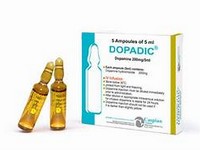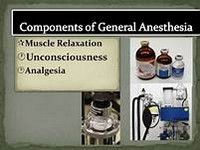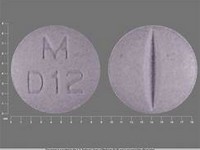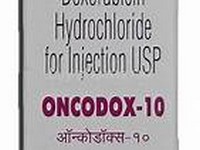methadone hydrochloride

CLINICAL USE
Treatment of opioid drug addiction Analgesic for moderate to severe pain
DOSE IN NORMAL RENAL FUNCTION
Opioid addiction: 10–40 mg per day, increasing by 10 mg per day until there are no signs of withdrawal or intoxication; reduce graduallyAnalgesia: 5–10 mg every 6–8 hours
PHARMACOKINETICS
Molecular weight :346.9 %Protein binding :60–90 %Excreted unchanged in urine : 15–60 Volume of distribution (L/kg) : 3–6half-life – normal/ESRD (hrs) :13–47/– DOSE IN RENAL IMPAIRMENT
GFR (mL/MIN)
20 to 50 : Dose as in normal renal function 10 to 20 : Dose as in normal renal function <10 : 50% of normal dose, and titrate according to response DOSE IN PATIENTS UNDERGOING RENAL REPLACEMENT THERAPIES
CAPD :Not dialysed. Dose as in GFR <10 mL/min HD :Not dialysed. Dose as in GFR <10 mL/min HDF/high flux :Unknown dialysability. Dose as in GFR <10 mL/minCAV/VVHD :Unknown dialysability. Dose as in normal renal function IMPORTANT DRUG INTERACTIONS
Potentially hazardous interactions with other drugsAntidepressants: concentration possibly increased by fluvoxamine; possible CNS excitation or depression with MAOIs and moclobemide – avoid concomitant use; possibly increased sedative effects with tricyclicsAnti-epileptics: concentration reduced by carbamazepine and phenytoin Antifungals: concentration increased by voriconazole – may need to reduce methadone doseAntivirals: methadone possibly increases concentration of zidovudine; concentration reduced by amprenavir, efavirenz, nelfinavir and ritonavir; concentration possibly reduced by abacavir and nevirapineAtomoxetine: increased risk of ventricular arrhythmiasSodium oxybate: enhanced effect of sodium oxybate – avoid concomitant use ADMINISTRATION
Reconstition
– Route
IM, SC, oral Rate of Administration
–Comments
Methadone is probably not suitable to be used as an analgesic for patients with severe renal impairment OTHER INFORMATION
Overdosage with methadone can be reversed using naloxoneRisk of QT interval prolongation especially with high doses and concomitant risk factors
See how to identify renal failure stages according to GFR calculation
See how to diagnose irreversible renal disease
Home









